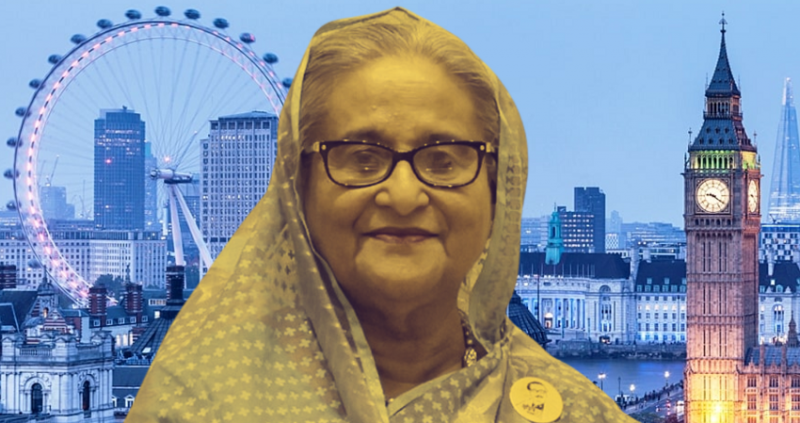
Sheikh Hasina, the Prime Minister of Bangladesh, has stepped down following large-scale anti-government protests. Reports confirm that Hasina resigned on Monday and has departed for London. According to sources in Dhaka, Hasina's military helicopter took off from the Bangabhaban, the official presidential residence, at 2:30 PM local time today.
The media outlet ProthomAlo reported that Hasina was accompanied by her younger sister, Sheikh Rehana, on the helicopter. There were also claims that the Prime Minister was en route to West Bengal, India. This move comes after protesters stormed the Gono Bhaban, the Prime Minister's residence, around 3 PM today, as reported by The Daily Star.
Thousands of demonstrators joined the Anti-Discrimination Students' Movement's "March to Dhaka" at the Mirpur 10 roundabout, moving towards Farmgate. Amidst escalating tensions, Army Chief General Waker-Uz-Zaman was forced to address the nation on television, with his statement being retracted later by the Inter Services Public Relations (ISPR), according to The Daily Star.
The protests began in earnest on August 3 when the Anti-Discrimination Student Movement issued a demand for the resignation of Hasina and her cabinet. This demand was made public by Nahid Islam, a key organizer, during a rally at Central Shaheed Minar. Hasina had previously invited protesting students to discuss their grievances at Gono Bhaban, aiming to resolve the conflict peacefully.
In response to the growing unrest, Bangladesh has announced a three-day shutdown of public and private offices, including banks. Students have planned a long march today, which could potentially lead to clashes with pro-government groups.
The renewed wave of protests is driven by a single demand: the resignation of Hasina and her cabinet members. Demonstrators have also launched a campaign of non-cooperation, urging citizens to withhold taxes and advising migrant workers against sending remittances through banking systems.
Violence has surged, with at least 93 reported fatalities and thousands injured, some critically. The unrest has been exacerbated by clashes between anti-government protesters and members of the ruling Awami League, who have attempted to suppress the demonstrations. The protests originally centered on demands for reforms to the quota system for civil service jobs, including allocations for descendants of 1971 war veterans. The situation has intensified with attacks on state television headquarters and police booths in Dhaka.
India SuspendsTrain Services with Bangladesh Amid Escalating Unrest
Is Bangladesh Facing Army Rule? PM Sheikh Hasina Flees Amid Unrest and Violence
Bangladesh Prime Minister Sheikh Hasina Resigns Amid Intense Protests